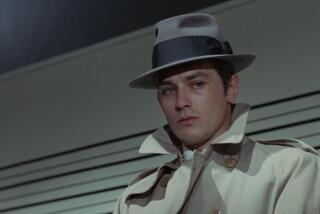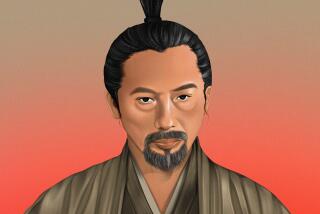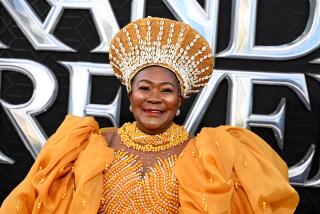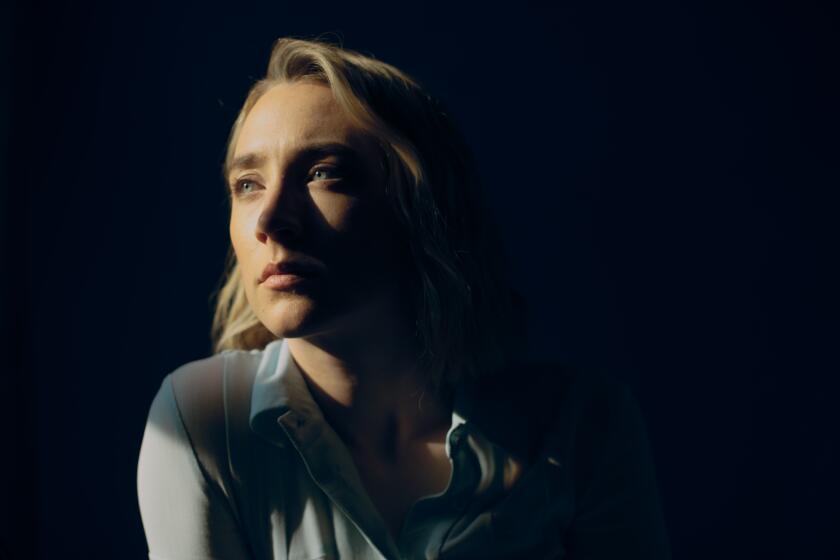Djimon Hounsou recounts 7 key roles, from telling big Africa stories to hanging with Angelina Jolie
Djimon Hounsou was born in Benin, Africa, and moved to Hollywood in 1990 from France, where he’d emigrated in his teens. The actor, now 52, has spent his career maintaining a connection to the stories of his homeland, always aiming to accept projects that focus on the African experience in some way. “I look for a beautiful arc in the character,” Hounsou says. “You hope that the character has great integrity as a man and that you have a social impact in the portrayal of the character. When you start with something like ‘Amistad’ it’s very hard to not be socially involved with issues around the world and involving your continent – the continent of Africa. I look for roles like that.”
The IMDB Files: Hollywood star reflect on their key roles »
Since appearing in Steven Spielberg’s “Amistad” in 1997, Hounsou has starred in numerous films and been nominated for two Academy Awards and a Golden Globe. His latest movie, “The Legend of Tarzan,” in which he appears as a grieving African chief with a vendetta against Alexander Skarsgard’s Tarzan, opened Friday. It’s one of several projects for the actor, who also recently co-directed a documentary about voodoo in Benin, which will likely come out in 2017. Hounsou also remains involved in several charities and was named the continental ambassador for international nonprofit Orbis Africa in June. Here the actor breaks down some of his most notable roles.
“The Legend of Tarzan” Chief Mbonga (2016)
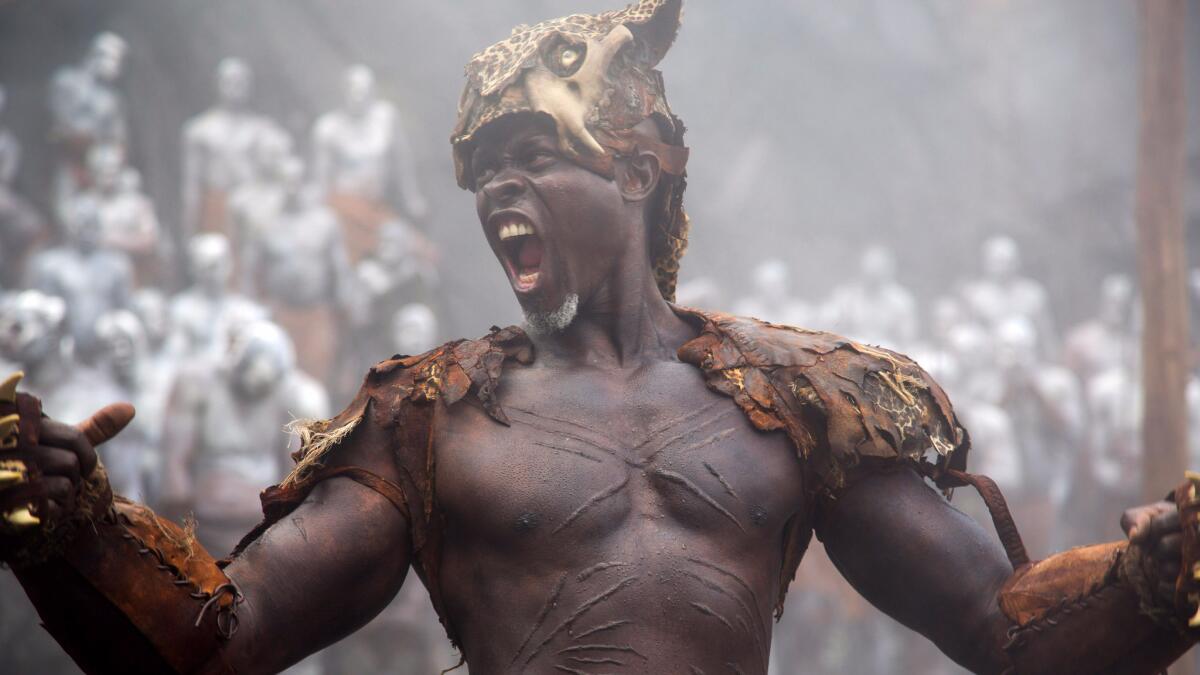
“Honestly, it started with [director] David Yates, who lured me into this role. I wanted to work with him first. And then, also, the way he saw the breakdown of the character and why he was the way he was. With my character, we were in great unison. So being in the film was both [about] the essence of the character and wanting to work with David Yates. But the costume, as great as it looks, was very uncomfortable to wear and to fight in.”
“Guardians of the Galaxy” Korath (2014)
“It was fun. One of the reasons why we make movies is to have fun, to be kids again, to play house. It was a movie on a much lighter note for me. I want to have fun more – sometimes the emotional roller coaster that goes into some of those characters can be hard. It’s definitely a delight to be part of fun pictures.”
“Blood Diamond” Solomon Vandy (2006)
“It goes without saying that I wanted to be part of this. This is one of the most socially impacting stories and this is one of the biggest stories out of the continent. It’s unbelievable. It was the most significant story for me. It was absolutely an honor to go on that journey with [Leonardo] DiCaprio, who felt passionate about the state of better affairs back then and supported it by being in the film.”
“Lara Croft Tomb Raider: Cradle of Life” Kosa (2003)
“That was a job, above all. You have to do some of [your films] commercially to live and some of those jobs are just jobs. But working with Angelina Jolie was the highlight of doing that job – getting to know her. And taking the trip itself. It was a journey with her and I throughout Africa to tribal villages. It was just stunning. We went to places where you couldn’t even land – you had to be dropped in by a helicopter.”
“In America”, Mateo (2002)
“It speaks of each and every one of us – and specifically to me – about migrating to America. Being the first generation and learning the pros and cons of a certain country and leaving the family and friends behind, and it’s only you. You have to be reborn and leverage what you knew from before in this foreign land and in this foreign language. When I came to America I couldn’t speak English so this spoke so loudly about every first-generation American. I felt directly connected.”
“Gladiator” Juba (2000)
“I was interested in the world of the film and in working with Ridley Scott. That was quite a trip. It was the first of that kind of film in a long time – they hadn’t made a film like that since the ‘60s. So it was quite a huge undertaking. It was very creative. I, for one, did not know where we were going with the film, but It was quite an experience and what a beautiful experience that was. When I watched it I kept thinking about all the hardships and fun we had making it, but the reception of the audience finally got me into the consciousness of, ‘Maybe we made a great film.’”
“Amistad” Cinque (1997)
“The casting was quite difficult. Certainly for the character I played it was quite challenging for Spielberg to find someone. By the time they came across me they’d been looking and searching for a while, even across the continent of Africa. It was unbelievable and extremely rewarding to hear that you are the best choice for the role and to hear how excited Spielberg was to meet with me and now could make his film. I learned so much about the slave trade and how the African diaspora came about in America. The spiritual impact the film itself had over me – and everyone – by witnessing that was very powerful.”
Stargate, Horus (1994)
“That was the first thing I did where I was a little more than an extra. I played a real character. It was with Roland Emmerich, who hired me for that, and so I was very happy about it. It was cool. But Amistad still feels like my first real thing.”
“Beverly Hills, 90210” nightclub doorman (1990)
“I was an extra on that show. I was just trying to get a job! I felt like I was in the mix. I came to Hollywood for that, and it made me feel like I was close. Or close enough.”
calendar@latimes.com
MORE:
Every Steven Spielberg movie ranked, from first to worst
Here’s who Alexander Skarsgård’s competing with to be the ultimate movie Tarzan
Can Alexander Skarsgard swing into movie stardom with ‘The Legend of Tarzan’? Does he even want to?
More to Read
Only good movies
Get the Indie Focus newsletter, Mark Olsen's weekly guide to the world of cinema.
You may occasionally receive promotional content from the Los Angeles Times.
